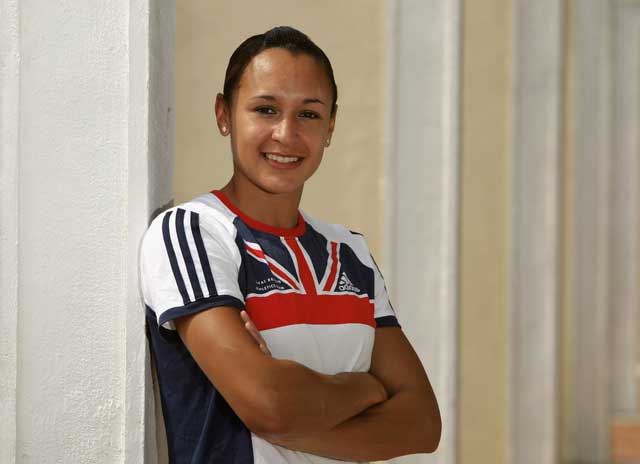Passed/Failed: An education in the life of Jessica Ennis, British athletic champion
'I would miss lectures at Sheffield University'

Your support helps us to tell the story
From reproductive rights to climate change to Big Tech, The Independent is on the ground when the story is developing. Whether it's investigating the financials of Elon Musk's pro-Trump PAC or producing our latest documentary, 'The A Word', which shines a light on the American women fighting for reproductive rights, we know how important it is to parse out the facts from the messaging.
At such a critical moment in US history, we need reporters on the ground. Your donation allows us to keep sending journalists to speak to both sides of the story.
The Independent is trusted by Americans across the entire political spectrum. And unlike many other quality news outlets, we choose not to lock Americans out of our reporting and analysis with paywalls. We believe quality journalism should be available to everyone, paid for by those who can afford it.
Your support makes all the difference.Jessica Ennis, 24, won the pentathlon title at the World Indoor Championships this year and the heptathlon at last year's World Championships. Her first senior international success was at 20 when she won a bronze at the Commonwealth Games. At 21, she equalled the 25-year-old British high jump record for women and is one of only 10 women to jump a foot above her own height. Injury prevented her from competing in the Beijing Olympics. She is an ambassador for the Aviva Elevating Athletics Fund (www.aviva.co.uk/athletics), which provides a teacher in every UK school the chance to attend a free athletics training course.
My first international competition was when I was 15 – my secondary school was very flexible about handing in work. At university, if it was a choice between missing a lecture and missing the training, I'd miss the lecture. My head of department was very encouraging.
I remember enjoying art and English at Sharrow Primary School in Sheffield. I didn't really read any sporting books but I did enjoy reading Roald Dahl. I had very good sports teachers and I enjoyed basketball, rounders and a bit of netball; then athletics took over and I didn't want to do the other sports any more. My sport really started when I was 10, when my parents took me to a two-week summer camp, the Aviva Startrack. I went there each summer holiday for two or three years.
I went to King Ecgbert comprehensive. It was a really good school and really good for sport. When I was 11, I joined the City of Sheffield Athletic Club. I was about 13 when I got a coach and started to learn most of the events in the heptathlon. Teachers were always encouraging me. I was in the English Schools and regional and national championships when I was under 15, taking part against 17-year-olds. When I was about 15 or 16, I first became focused on athletics as a potential career.
At school, there were always a few good athletes and middle-distance runners, but no one was multi-event like me. It wasn't so much that I was missing lessons as that I was missing my homework. I would go home, grab something to eat and then go to the club, where I'd be on the track until 8.30pm. My weekends would be filled with training and competitions.
In my GCSEs, I got As and Bs – and a D in German! My A-levels were psychology, English and sports studies. I enjoyed psychology very much; it was nice to do something different from sport, and I enjoyed English with a very good teacher. Sports studies was theory-based, learning about energy systems and physiology.
I didn't have a typical student life at Sheffield University. I'd go away for three or four weeks at a championship. The main events were the Commonwealth Games in my first year and the World Championships in my final year. It was a general psychology degree and not sports psychology, but there have been crossovers between my psychology degree and athletics.
I really enjoyed the course – good, quite difficult, with a lot of science. I think studying psychology makes you pay a lot more attention to certain aspects of people's personality and behaviour. I got a 2.2. This year I was awarded an honorary degree by Sheffield University. I attend functions at the university – and they named a meeting room after me.
Join our commenting forum
Join thought-provoking conversations, follow other Independent readers and see their replies
Comments